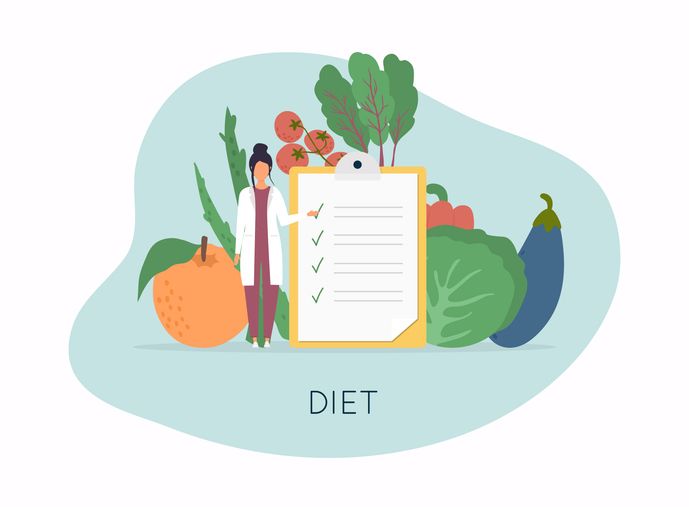
Author: Natalie Ng|Updated: 12 May 2025
Relying on a liquid diet to lose weight might seem like a quick fix—but sticking with one for too long can lead to real problems. Liquid foods like protein shakes, fruit juices, and soup can help cut calories, but if they replace solid foods for too long, your body starts missing out on nutrients it needs to stay healthy. Over time, this can cause muscle loss, slow down digestion, drain your energy, and even put stress on your organs. Things like clear liquids, full liquid foods, and other liquid supplements tea may be useful after a medical test or bariatric surgery. But using them as a long-term plan for fat loss can do more harm than good. Studies show most people regain weight quickly, often within a year, and face side effects like blood sugar crashes, loss of strength, and nutritional gaps from not getting enough fiber or certain vitamins. Even soft foods like baby food, vegetable juices, sherbet fruit ices, or frozen yogurt don’t offer the same support that balanced meals do. Before you swap meals for sports drinks, ice pops, or hot cereal, it’s important to know what that choice could cost your health. Keep reading to learn what happens when liquid diets take over—and why your body needs more than just drinks to stay strong.

Muscle Mass Loss and Metabolic Slowdown
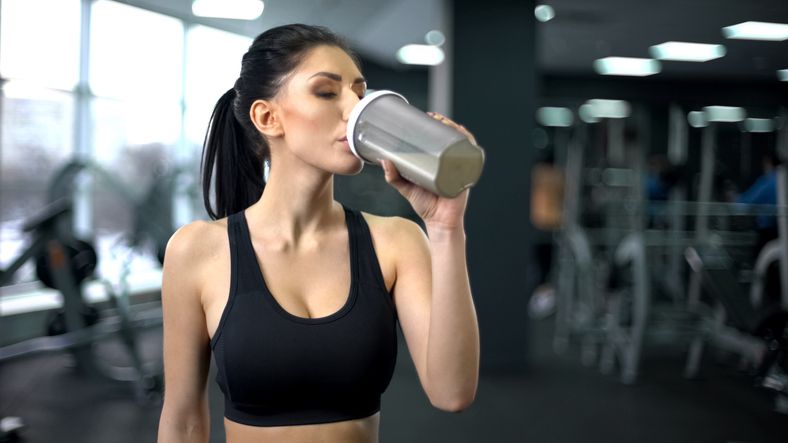
Liquid diets break down more than just fat
Switching to a liquid diet—whether it’s clear liquids, full liquid foods, or protein shakes—often means you’re not getting enough calories and nutrients to fuel your body properly. Without enough protein and energy, your body starts using muscle tissue for fuel. This loss in muscle slows down your metabolism.
Lower muscle, slower burn
Muscle helps your body burn calories, even while resting. When your muscle mass drops, so does the number of calories your body needs each day. Even if you're eating fewer calories, weight loss stalls. The body shifts into a survival mode, burning fewer calories and holding on to fat.
Returning to food resets the scale
Once you stop the liquid foods and return to solid foods—like cooked cereals, mashed foods, or wheat cream—your slower metabolism makes it easier to gain weight back. Most people regain even more than they lost, because their body isn’t burning as much energy as it used to.
This is why long-term weight loss through liquid diets often backfires. Without enough protein and strength training, the drop in muscle mass makes future fat loss harder and increases the chances of weight regain.

Nutritional Deficiencies and Vitamin Imbalances
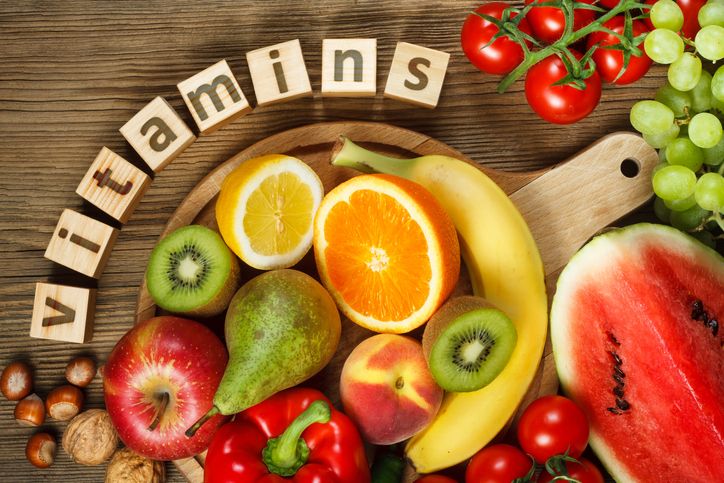
Liquid diets leave nutritional gaps
A full liquid diet made up of items like fruit juices, protein shakes, hot cereal, nonfat dry milk, or other liquid supplements tea may help reduce calorie intake. But over time, they can create large nutritional gaps. Your body needs more than calories—it also needs a wide mix of vitamins and minerals that support immune health, cell repair, and overall function.
Liquid diets, even when enriched with non dairy creamer or water fruit juices, rarely deliver enough of these essential micronutrients. They often fall short on fat-soluble vitamins (A, D, E, and K), which require dietary fat and proper digestive activity for absorption. Without foods that require chewing—like mashed foods, whole milk, or cooked cereals—these vitamins are harder for your body to absorb and use effectively.
Poor absorption of essential minerals
Liquid foods don’t trigger the same digestive processes as solid foods. This slows down mineral absorption. Your digestive system works best when it has a mix of textures and fiber. When your meals only consist of soft foods or drinks like ginger ale, clear liquids, or apple juice, the gut doesn’t get the usual signals to release enzymes and acids.
This makes it harder for your body to absorb key minerals like iron, zinc, and magnesium—even if they’re added to the drink. Over time, this can lead to weak immunity, poor bone health, and problems with healing and hormone balance. Mineral absorption from full liquid foods can drop by more than half compared to solid foods.
Imbalanced vitamin intake
Even if your liquid diet includes added vitamins, the mix often isn’t balanced. Your body needs specific ratios for vitamins to work well together. Too much of one and not enough of another can interfere with how nutrients are used or stored. For example, taking in excess vitamin A without enough D or K can affect bone strength and immune function.
Synthetic vitamins in liquid supplements tea or sports drinks may not be absorbed as efficiently as natural ones from whole foods. This can cause certain vitamins to build up while others stay too low, creating imbalances that affect everything from your energy levels to your mood.
Book Now to Experience
S6 Body Sculpting Treatment
1 Minute Self-Registration
Date should not be before minimal date

Digestive System Disruption
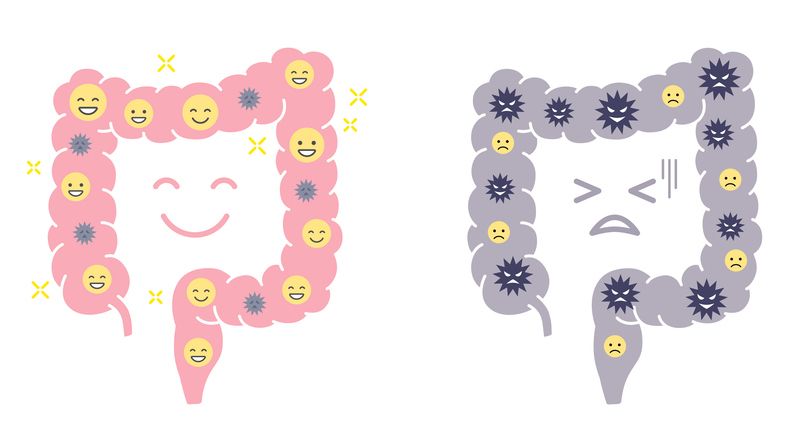
Liquid diets weaken digestive function
Your digestive system relies on solid foods to stay active and healthy. When you follow a clear liquid diet or full liquid diet for too long—using only foods like jell o, ice cream, carbonated drinks, or fruit juices—your digestive muscles stop working the way they should. This slows down digestion and reduces gut efficiency.
Without foods that require chewing, your body produces less stomach acid and fewer digestive enzymes. Meals like soft foods, baby food, or sherbet fruit ices don’t stimulate the same natural digestive responses. As a result, your body becomes less effective at breaking down and absorbing nutrients.
Reduced gut motility and enzyme production
Chewing and swallowing solid foods trigger muscle contractions throughout your digestive tract. These movements help push food through your system. But when your diet is limited to items like soup, white grape juice, or non dairy creamer, the mechanical motion of digestion weakens.
Weaker contractions mean slower movement through the digestive tract. This can lead to constipation and discomfort. Your body also produces fewer enzymes, which are needed to digest protein, fat, and carbs. Over time, you may notice bloating, irregular bowel movements, and poor nutrient uptake.
Changes in gut bacteria
Your gut bacteria play a major role in digestion, immunity, and even mental clarity. These bacteria thrive on fiber and resistant starches—mostly found in whole, solid foods. A long-term liquid diet with limited fiber and cooked cereals, and high in sugar or simple drinks like apple juice and ginger ale, can upset the balance of bacteria in your gut.
When this balance is lost, it may trigger inflammation, lower immunity, and further slow digestion. Without enough fiber or prebiotic foods, your gut can’t support a healthy digestive environment.

Rapid Weight Regain After Resuming Normal Eating
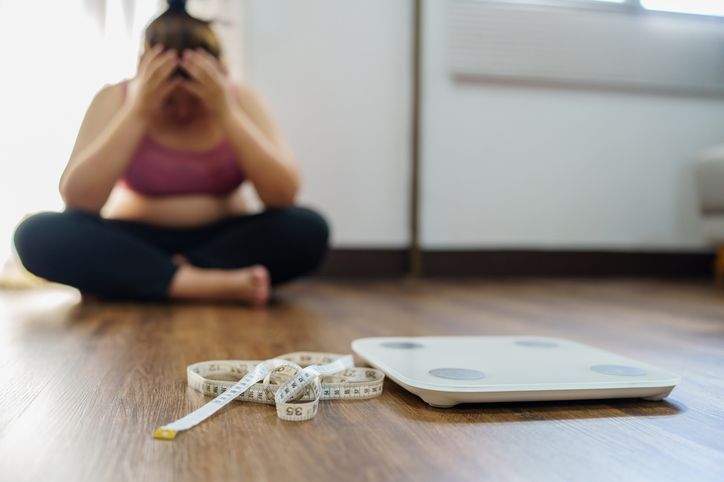
Weight rebounds quickly after a liquid diet
After following a liquid diet—especially one made up of drinks like fruit juices, vegetable juices, protein shakes, and full liquid foods—your body adapts to fewer calories. This includes a drop in metabolism and changes in how your body stores energy. When you switch back to solid foods like mashed foods, cooked cereals, or wheat cream, weight often returns quickly, sometimes exceeding your starting weight.
This rebound happens because your body has adjusted to doing more with less. Once you eat more calories again, especially without proper meal planning, the extra energy is stored as fat more easily than before.
Hunger returns with intensity
During a full liquid diet, hunger signals are suppressed. Meals are usually simple and measured, with limited variety. But once you return to eating foods that require chewing—like soup with solids, hot cereal, or soft foods—your natural hunger cues often return in full force.
Your body, trying to recover from restriction, can trigger intense cravings. These hunger spikes often lead to overeating, especially if portion control wasn’t part of your routine. After consuming fewer calories for a long time, your brain drives you to eat more to feel safe and satisfied.
No practice with real-world eating
Liquid diets remove the need to make food decisions. Drinks like sports drinks, milk-based protein shakes, or other liquid supplements tea are pre-portioned and require no planning. But once you're back to eating full meals, you may find it hard to judge portions or balance food groups.
Without experience in choosing solid meals and reading hunger cues, it’s easy to slip into eating too much, too quickly. This creates a cycle of weight regain and frustration that can be hard to break without support from a registered dietitian or structured plan.
Book Now to Experience
S6 Body Sculpting Treatment
1 Minute Self-Registration
Date should not be before minimal date

Social Isolation and Disordered Eating Patterns

Eating becomes a private activity
Following a liquid diet—made up of items like coffee, tea, fruit juices, clear liquids, or ice pops—often limits your ability to join social meals. Since most shared meals involve solid foods that require chewing, people on liquid diets may start avoiding events like birthdays, holidays, or dining out. Saying no to meals can slowly disconnect you from social life.
The more meals you skip, the harder it becomes to engage in normal food routines. Over time, this pattern leads to social withdrawal, as food plays a key role in human connection. This isolation is especially common when someone follows a restrictive diet without clear medical need, such as for general weight loss rather than a medical condition or post-bariatric surgery care.
Disordered eating can follow isolation
When eating becomes something you do alone, without regular meals or shared habits, the way you think about food often changes. Relying on full liquid foods, protein shakes, or frozen yogurt may feel safe during the diet phase—but once it’s time to return to normal meals, anxiety around solid foods can develop.
This shift may cause disordered eating patterns. You might feel out of control with solid foods, binge in secret, or feel guilty after eating. You may even start fearing certain foods or restricting food groups, which can worsen nutritional imbalances. Without input from others—like family meals or peer observation—these patterns can go unnoticed and grow over time.

Gallstone Formation and Organ Stress
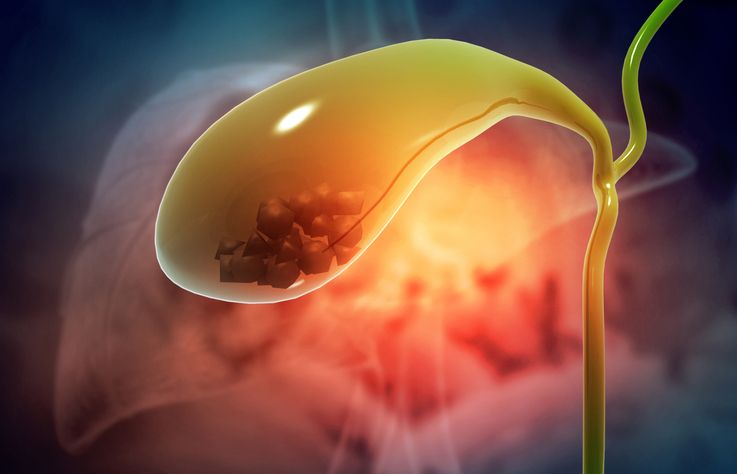
Rapid fat loss affects gallbladder health
Liquid diets often create a sharp drop in daily calorie intake. When you replace full meals with drinks like vegetable juices, nonfat dry milk, or fruit juices, your body begins to burn fat quickly. While this can cause short-term weight loss, it also puts pressure on your gallbladder.
When you stop eating solid foods that trigger regular gallbladder contractions—like cooked meals with fat and fiber—bile doesn’t get released often. It begins to sit still and thicken. Over time, this stagnation can lead to gallstone formation. Gallstones can cause pain, bloating, nausea, or require medical treatment in more serious cases.
Organs work harder to adjust
Your liver and kidneys also respond to the change. Processing only liquids—such as clear liquid diets, hot cereal, sherbet fruit ices, or carbonated drinks—changes how these organs function. The liver may become overworked from breaking down stored fat quickly, while the kidneys work harder to manage fluid and electrolyte balance.
Meanwhile, your digestive tract begins to lose muscle tone. Without solid foods that stimulate movement, your digestive muscles grow weaker. This can make it harder to return to regular eating and increase the risk of constipation or bloating.
If followed long term without guidance from a registered dietitian or medical supervision, liquid diets can lead to stress across several body systems—especially during extreme or rapid fat loss phases.
Book Now to Experience
S6 Body Sculpting Treatment
1 Minute Self-Registration
Date should not be before minimal date

Energy Crashes and Mental Fog

Blood sugar swings drain your focus
A liquid diet that relies on drinks like apple juice, white grape juice, ice cream, or sweetened tea can cause quick spikes in blood sugar followed by sharp drops. These highs and lows leave you feeling tired, unfocused, and irritable. Without the steady release of energy from balanced meals, your body struggles to maintain concentration throughout the day.
Solid foods—especially those with fiber and healthy fats—help regulate blood sugar. But liquid meals, even ones labeled as healthy or low-calorie, often lack this structure. Your brain depends on a steady flow of glucose to function well. Without it, you may experience brain fog, slower thinking, and poor memory recall.
Lack of complex nutrition reduces stamina
When you're living on full liquid foods, other liquid supplements tea, or clear liquids, your meals are often missing protein, fiber, and healthy fats—all of which help sustain energy. You may find yourself crashing in the middle of the day, even if you’re technically consuming enough calories.
Without solid nutrition, your body runs on short bursts of energy. You’ll likely feel more tired, especially during work, school, or physical activity. Over time, this mental and physical fatigue can affect productivity, motivation, and your ability to stick with a healthy routine.

Debunking Common Myths Around Liquid Diets

Myth 1: Liquid diets are a fast and healthy way to lose weight
Many people believe that a clear liquid diet or full liquid foods will lead to quick and lasting weight loss. While it’s true that cutting calories through liquid foods can lead to short-term results, the weight lost is often a mix of water, muscle, and very little fat. Once you return to solid foods, weight regain is common—especially without changes in long-term eating habits or activity levels.
Myth 2: You can get all your nutrients from liquid supplements
While protein shakes, vegetable juices, and other liquid supplements tea can provide calories and basic vitamins, they rarely cover everything your body needs. You may still fall short on fiber, minerals, and fat-soluble vitamins. Over time, this can lead to deficiencies—even if the drinks are fortified. Whole foods offer a complex mix of nutrients that’s difficult to replicate with liquid products.
Myth 3: Liquid diets are easier on the digestive system
A short-term clear liquid diet can be gentle on the digestive tract during illness or before a medical test. But using one for fat loss can actually cause problems. Without solid food, your digestive muscles may weaken. The lack of fiber-rich foods like mashed vegetables, wheat cream, or hot cereal also affects gut bacteria and regular bowel movements.
Myth 4: They help control hunger better than solid food
Most liquid meals, including drinks like apple juice, carbonated drinks, or fruit ices, pass through the stomach quickly. They often leave you hungry sooner than meals that include soft foods or those that require chewing. Solid foods take longer to digest and help release fullness hormones. A diet based mostly on liquid calories doesn’t train your body to recognize hunger or fullness signals.

Introducing the S6 Body Sculpting Treatment : A Smarter Alternative to Liquid Diets
Liquid diets may seem like a quick way to lose weight, but using them long-term comes with clear risks. You may lose water weight at first, but muscle mass, essential nutrients, and steady energy often go with it. Over time, your metabolism slows, digestion weakens, and most people regain the weight—especially once they return to solid foods like cooked cereals, wheat cream, or mashed foods.
While protein shakes, fruit juices, and other liquid supplements tea may help reduce calories, they don’t offer enough fiber, protein, or minerals to support your body long term. Clear liquid diets and full liquid foods are often used for short medical reasons, such as before a medical test or during recovery from a medical condition. But they’re not made for long-term fat loss.
A better way to support fat loss without losing nutrition
For those looking to lose weight and reduce fat in stubborn areas—without sacrificing nutrition or relying on restrictive diets—there is another solution: the S6 Body Sculpting Treatment. This non-invasive fat reduction treatment uses bio-laser and vacuum suction technology to help eliminate fat cells without needles, downtime, or the need to follow an extreme liquid diet.
Unlike diets that cut calories and nutrients, the S6 Body Sculpting Treatment targets fat directly. The bio-laser breaks down fat stored under the skin, while vacuum suction supports natural lymphatic drainage. This helps your body flush out the fatty acids without disrupting your metabolism or digestive system.
Why it works well alongside healthy eating
The S6 Body Sculpting Treatment is especially effective for those struggling to lose fat from specific areas—like the belly, thighs, arms, or underneath the buttocks. Even with a balanced diet, including soft foods, fruit, milk, or cooked meals, some fat areas don’t respond easily. This treatment offers a way to target those spots directly, helping you slim down without relying on clear liquids or restrictive meal plans.
Unlike liquid diets that often cause rebound weight gain, this treatment destroys fat cells so they don’t regenerate. It’s painless, requires no recovery time, and fits easily into a busy schedule. Whether you’re already making healthy changes or just starting out, this method supports your goals without the risk of vitamin imbalances, energy crashes, or digestive tract issues.
Book your consultation today
If you're looking for an effective, non-invasive way to reduce fat while keeping your nutrition on track, consider adding the S6 Body Sculpting Treatment to your routine. It’s a safe way to support body contouring without needing to give up solid foods or rely on full liquid diets.
Book your appointment now to start your fat loss journey—no strict dieting or downtime required.
New Beauty's S6 Body Sculpting TreatmentBook Now to Experience
S6 Body Sculpting Treatment
1 Minute Self-Registration
Date should not be before minimal date
FAQ
1. Can I follow a full liquid diet and still get enough fiber?
Most full liquid diets lack fiber because they exclude foods that require chewing, such as fruits, vegetables, and whole grains. Fiber is essential for maintaining digestive tract health and preventing constipation. While you can blend some high-fiber ingredients like cooked cereals or vegetable purees into liquid form, it's still difficult to meet daily fiber needs through liquid foods alone. For those concerned about digestive system function, adding fiber supplements under the guidance of a registered dietitian may help—but they are not a complete substitute for natural sources.
2. Is it safe to replace all meals with protein shakes long-term?
Replacing all meals with protein shakes or other liquid supplements tea can lead to an imbalanced intake of vitamins, minerals, and essential nutrients. While protein shakes provide a concentrated source of calories and protein, they typically lack enough fiber, certain vitamins, and healthy fats. Long-term use without solid foods may increase your risk for blood sugar fluctuations, digestive issues, and nutritional deficiencies. These products are best used as part of a balanced diet rather than a complete replacement for meals.
3. Are there low-calorie soft foods that can support weight loss without going fully liquid?
Yes, there are soft foods that are low in calories and still provide nutritional value. Examples include mashed fruits, cooked vegetables, wheat cream, hot cereal, plain yogurt, and soft scrambled eggs. These foods can help you eat fewer calories while still supplying important nutrients like protein, fiber, and minerals. Unlike clear liquid diets or sports drinks, soft foods also support chewing and digestion, helping maintain digestive system strength and satisfaction.
4. How does the body react to going back to solid foods after a liquid-only diet?
Transitioning from a liquid diet back to solid foods should be done gradually. The digestive system may need time to readjust, especially if the diet included mostly clear liquids or full liquid foods. Sudden reintroduction of high-fat or high-fiber meals can cause bloating, stomach discomfort, or changes in bowel habits. Starting with easy-to-digest options like cooked cereals, mashed foods, and soft proteins can help reduce digestive stress and support a smoother return to regular eating.
5. Can the S6 Body Sculpting Treatment replace diet and exercise completely?
The S6 Body Sculpting Treatment helps reduce fat in targeted areas using non-invasive methods like bio-laser and vacuum suction. While it supports visible fat loss and helps shape the body, it is not a substitute for healthy eating or physical activity. To maintain long-term results and support overall health, combining the treatment with a balanced diet—including solid foods, enough fiber, and proper calories—is recommended. Simple habits like drinking water, limiting sugar, and staying active also help improve the effectiveness of the treatment and reduce the chance of new fat accumulation.
Recommended Articles
COPYRIGHT© NEW BEAUTY MANAGEMENT LIMITED 2026. ALL RIGHT RESERVED.


